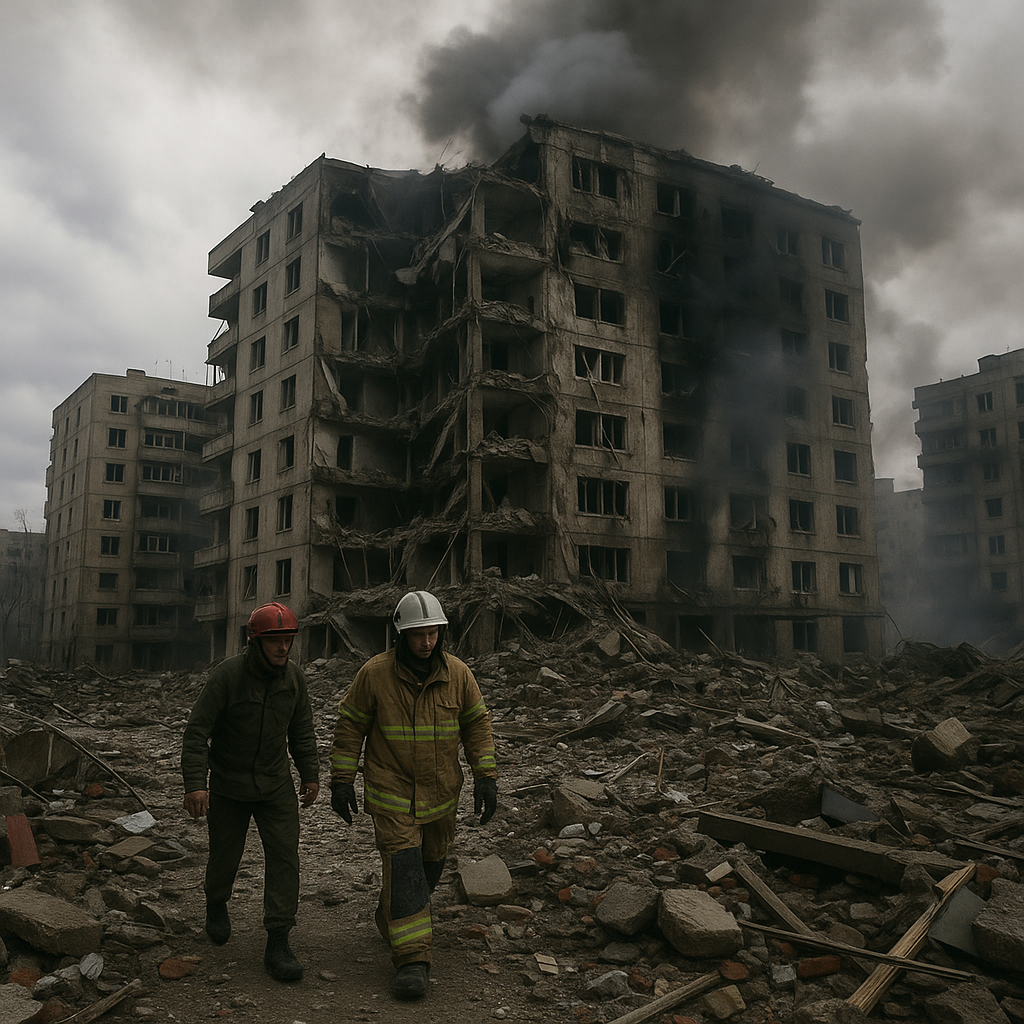Civilian Toll Mounts as Israel-Iran Conflict Escalates with Devastating Attacks
Recent days have witnessed devastating Israeli airstrikes across Iranian territory and retaliatory missile and drone assaults launched by Iran.

As military hostilities between Israel and Iran intensify, the international community is sounding urgent alarms over the severe human rights and humanitarian fallout. What began as a calculated military exchange has rapidly spiraled into widespread destruction that is engulfing civilians, with escalating violence threatening to destabilize the broader Middle East.
Recent days have witnessed devastating Israeli airstrikes across Iranian territory and retaliatory missile and drone assaults launched by Iran. These attacks have reportedly inflicted mass civilian casualties and devastated essential infrastructure in both countries, drawing global condemnation and increasing fears of a regional conflagration.
Mounting Civilian Casualties and Infrastructure Damage
The reported human toll continues to rise. According to official Iranian figures, at least 224 civilians have been killed, with independent human rights monitors estimating that the true number may be well over 500, and many more injured. Meanwhile, Israeli authorities report 24 fatalities and more than 840 injuries, mostly from drone and missile attacks.
Civilian infrastructure has borne the brunt of the assault. In Iran, entire residential districts in Tehran, Isfahan, and Shiraz have been reduced to rubble, with hospitals, clinics, schools, and water pipelines obliterated. Oil and gas facilities, some of which serve civilian populations, have also been struck, creating environmental and economic hazards. Israeli cities have faced missile attacks damaging apartment blocks, public transport, and emergency services facilities.
Mass displacement is underway, with thousands of civilians evacuating urban centers under direct attack. Particularly alarming are evacuation warnings covering vast areas of Tehran, prompting widespread panic and disarray.
International Humanitarian Law Violations
Amid the intensifying violence, the UN High Commissioner for Human Rights and numerous global rights organizations have condemned both Israel and Iran for violating core principles of international humanitarian law. The rules of distinction, proportionality, and precaution—meant to protect civilians and civilian objects—are reportedly being ignored.
Deliberate or indiscriminate attacks on non-combatants, hospitals, schools, and essential infrastructure constitute war crimes under international law. Human rights monitors have documented disturbing evidence of such violations on both sides, with aerial bombardments and missile strikes frequently hitting densely populated neighborhoods.
“It is appalling to see how civilians are treated as collateral damage in the conduct of hostilities,” one senior UN official noted.
Escalating Rhetoric Deepens Fears of Wider War
Beyond the battlefield, political rhetoric has escalated dramatically. Senior officials in both Israel and Iran have issued inflammatory statements suggesting an intent to inflict mass civilian harm as part of their military strategies. These remarks, disseminated across media channels, fuel tension and dehumanize innocent populations.
Such rhetoric not only violates the principles of international law but risks galvanizing extremist elements and drawing neighboring countries into the conflict. There are already signs of unrest and mobilization in bordering regions, including southern Lebanon, northern Iraq, and the Persian Gulf.
Urging De-escalation: Diplomacy Over Destruction
Experts and diplomats alike are calling for immediate de-escalation and a return to diplomacy. International actors, including the United Nations, the European Union, and regional powers like Turkey and Qatar, are urging both nations to halt their military campaigns and engage in good faith negotiations to resolve underlying tensions.
“The only way out of this spiraling illogic of escalation is maximum restraint, full respect for international law, and return in good faith to the negotiating table,” a UN Human Rights spokesperson emphasized.
Humanitarian corridors, ceasefire monitoring mechanisms, and third-party mediation are among the urgent measures being proposed to prevent a full-blown regional war.
A Dire Crossroads for the Region
With each passing day, the stakes rise exponentially. The lives of millions are imperiled by a conflict that is increasingly detached from its military origins and dangerously enmeshed in cycles of vengeance and power projection.
Without a rapid and sustained diplomatic response, the Middle East faces the prospect of yet another devastating war—this one with the potential to engulf multiple nations and irreversibly scar generations to come.
ALSO READ
U.S. Sanctions ICC Judges Over Afghanistan War Crimes Probe
U.S. Sanctions ICC Judges over War Crimes Cases
Commander says National Guard members already have temporarily detained civilians in the Los Angeles protests, reports AP.
Syrian Doctor Sentenced to Life for War Crimes in Germany
Macron Urges Halt to Strikes on Civilians Amid Israel-Iran Conflict










